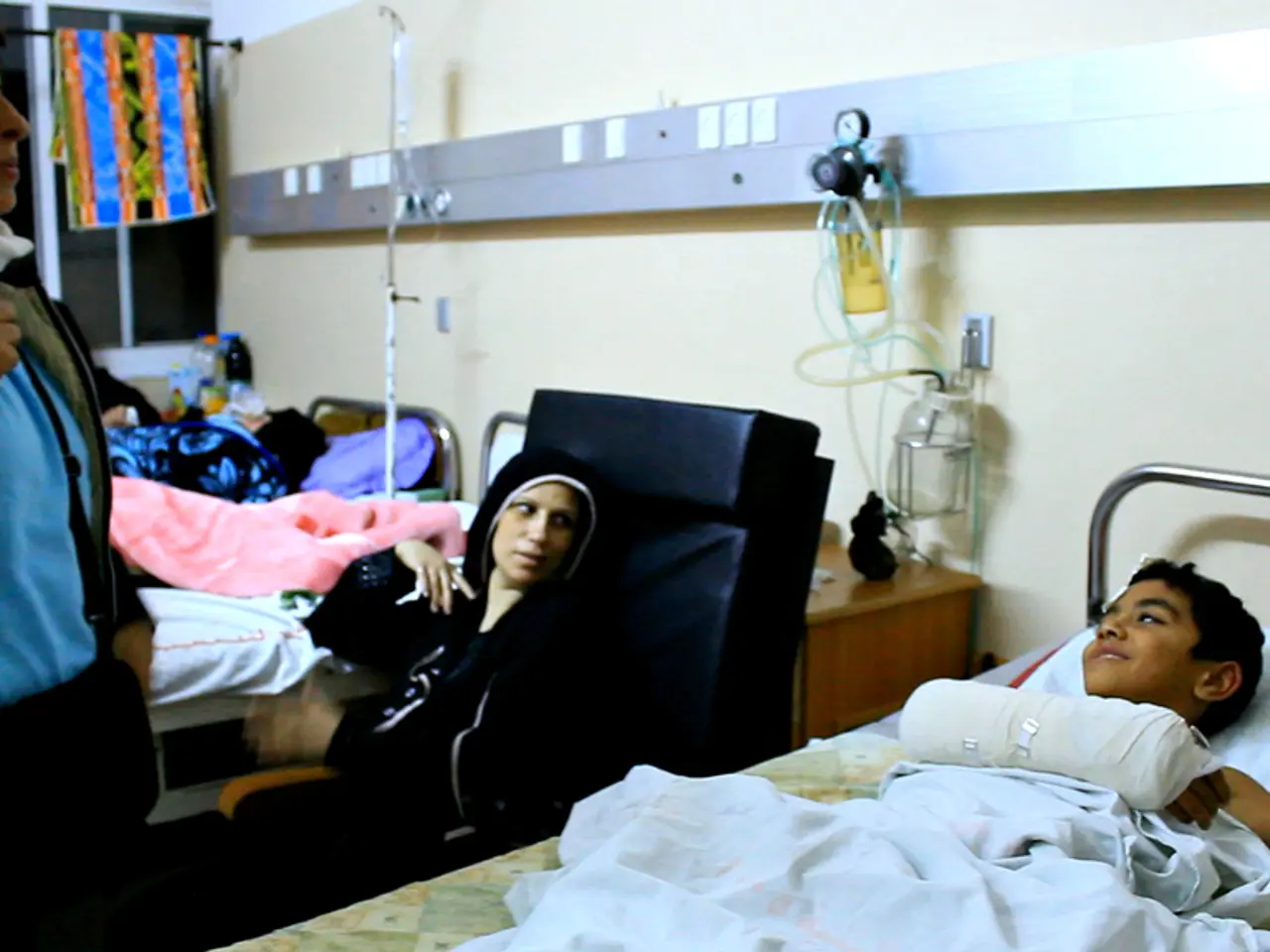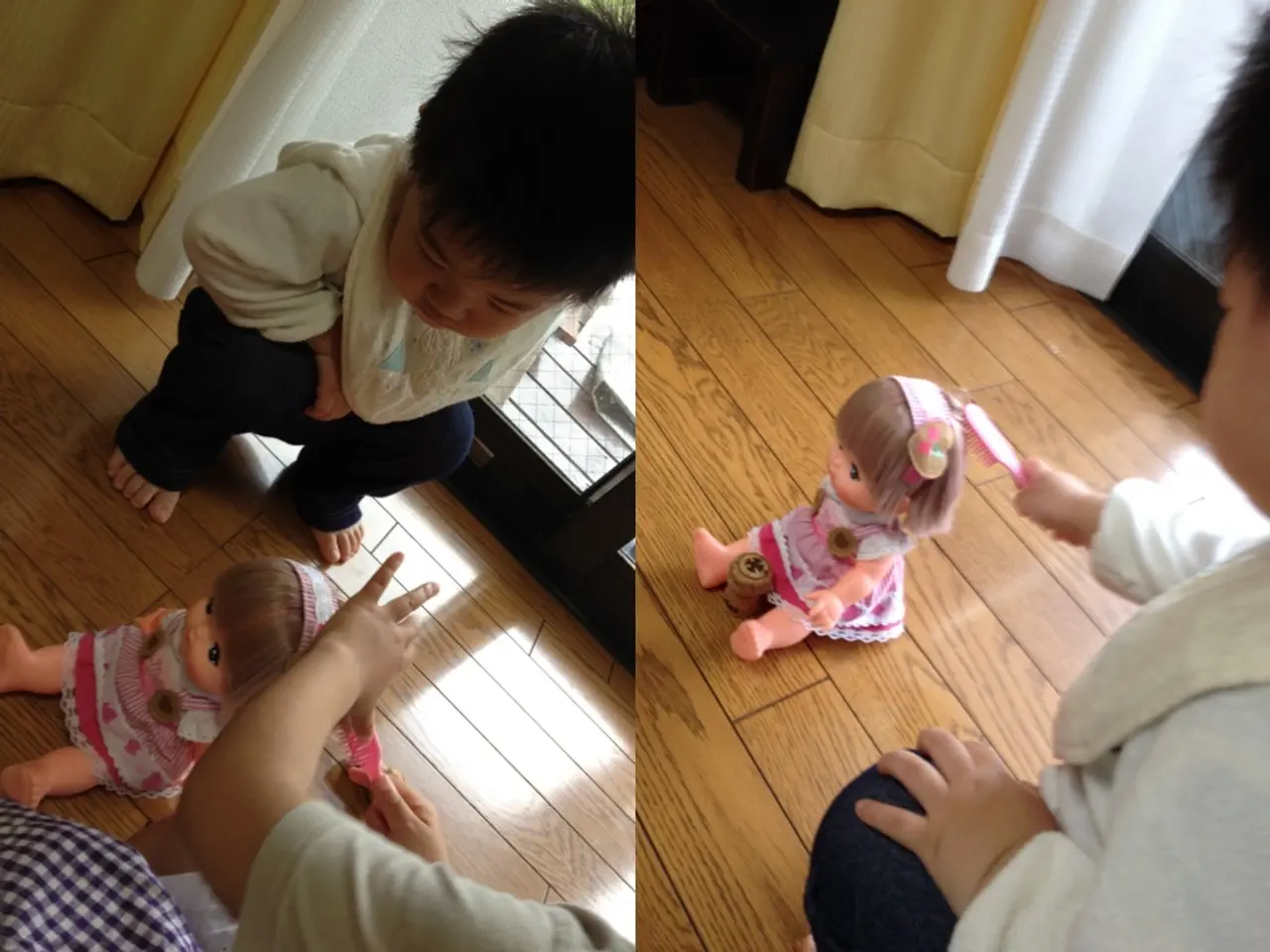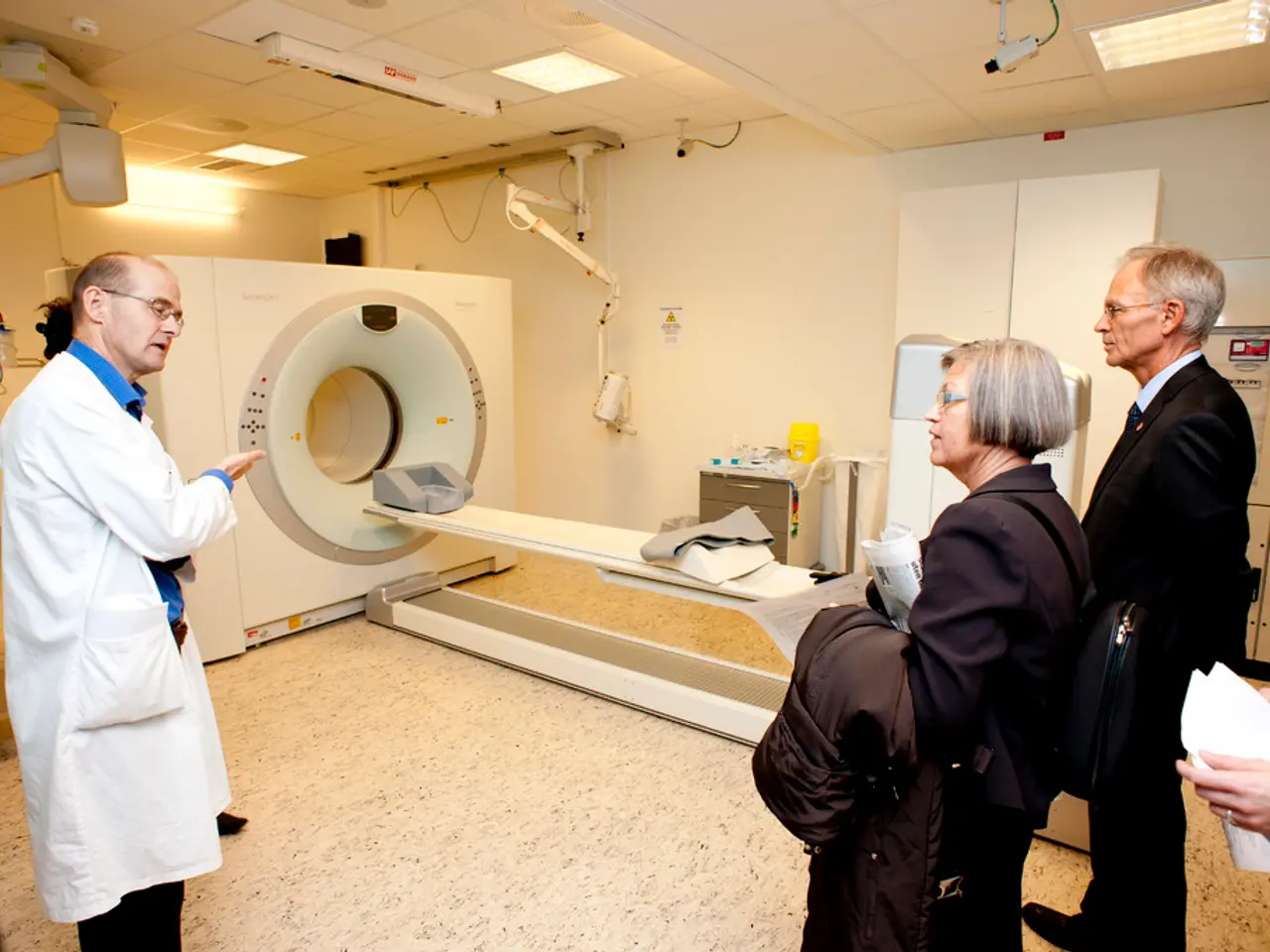US Healthcare Institutions Rely on Foreign Resident Doctors, Facing Visa-Related Challenges
In a significant twist for the healthcare sector, the Trump administration's travel and visa restrictions have caused delays and barriers for hundreds of international medical graduates scheduled to start their residencies in the United States. The exact number of foreign medical residents affected remains unclear, but reports indicate that the restrictions have impacted over 6,600 residents, the highest on record, who matched into U.S. programs in 2025 [2][3][4].
The suspension of interviews for J-1 visas, commonly used by international medical residents, has been a major contributing factor. This suspension, which delayed the start of many residency programs on July 1, a critical date in medical training cycles, has caused urgent challenges, particularly for hospitals in low-income and rural areas that rely heavily on foreign residents to fill staffing gaps [1][2].
The pause on J-1 visa interviews was lifted in mid-June, but it may take weeks to fully assess the extent of the delays and barriers faced by foreign medical residents. Two doctors in a 150-resident program at a large health care system are delayed, and they may start late or defer to next year [5]. As of Wednesday, fewer than 20 requests to defer or cancel residency contracts have been received by Lamb's matching program [6].
Foreign medical trainees who've made it into the US remain on edge about their situations. The word on the street among foreign medical trainees is: "Do not leave the country." Two residents from India, speaking anonymously, have not been able to secure a visa appointment at any US embassies [7]. Leaders at two graduate medical education programs in California have a small number of residents caught up in J-1 visa delays, speaking anonymously due to concerns for the doctors [8].
Thousands of foreign medical residents fill critical gaps in the US healthcare system, often taking jobs in underserved areas and specialties where US medical trainees are less likely to apply [9]. Some foreign medical residents may keep trying to get to the US and start their residencies late, out of fear of losing their spots if they defer [10]. Hospitals may struggle to replace residents who don't make it, leaving fewer people to care for the same number of patients.
The US is projected to face a physician shortage in the next 11 years, and foreign medical residents help alleviate this shortage. However, the delays and barriers faced by these residents risk affecting patient care and the operational stability of many hospitals [1]. A permanent Canadian resident who matched to the University of Pittsburgh Medical Center Harrisburg but was denied a visa because she is an Afghan citizen expressed concern about the situation [11].
The US embassies have been slow to open up interview slots for foreign medical residents. The medical community initially feared that hundreds of positions, many in low-income or rural areas of the US, could be affected. One resident in a 135-person program at a California public health system has yet to arrive, but was finally scheduled for a visa interview [12].
In summary, while precise figures are not yet available, the impact has been substantial, involving potentially hundreds of foreign medical residents prevented or delayed from beginning their U.S. medical training due to visa suspensions, travel bans, and enhanced vetting procedures imposed during the Trump administration [1][2][3]. The situation highlights the important role foreign medical residents play in the US healthcare system and the urgent need for a swift resolution to the visa restrictions.
- The delays and barriers caused by the travel and visa restrictions, particularly for international medical graduates, are posing urgent challenges, especially for hospitals in low-income and rural areas that are heavily reliant on foreign residents to fill staffing gaps.
- Thousands of foreign medical residents, who fill critical gaps in the US healthcare system, are keeping hopes alive to start their residencies late, out of fear of losing their spots if they defer.
- In the world of education, leaders at two graduate medical education programs in California have residents caught up in J-1 visa delays, and the medical community is advocating for a swift resolution to the visa restrictions.
- The temporary halt on J-1 visa interviews and travel bans have caused some foreign medical trainees to remain on edge about their situation, with an unspoken advice circulating among them: "Do not leave the country."
- As the US grapples with a projected physician shortage in the next 11 years, news reports focus on the impact of visa suspensions, travel bans, and enhanced vetting procedures on the world of health and wellness, potentially affecting patient care and the operational stability of many hospitals.




